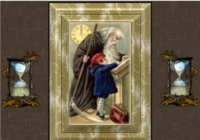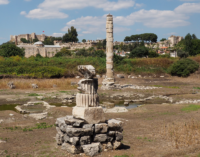The Historic Holy Week of Jesus!
![]()
That horrible, incredible, unfathomable, amazing, beautiful, redeeming and painful week is upon us. Let’s follow our unswerving Savior into sorrow, cruelty and betrayal that He took on to keep us from being defined by those things.

A unique display of handcrafted art showing the fulfillment of ancient prophecies about Jesus’ death.
We’ll glance into the Saturday before Palm Sunday to see what was happening that day and contemplate how that could apply to us today.
What impact on history and on your soul do you see from this unprecedented week?
After the anguish of His soul, He will see the light of life and be satisfied…
Isaiah 53:11 BSB











